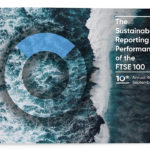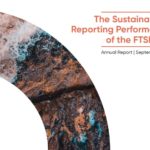FTSE 100 companies are making great progress in reporting on the social impacts of their activities. But most have yet to demonstrate real performance improvements on key social issues. Thats the key message from a survey released by consultancy ERM (Environmental Resources Management) on the use of social indicators in corporate reporting.
Significantly, ERMs work indicates that social responsibility is quickly becoming a mainstream business issue. Of all the FTSE 100 companies surveyed, 79 are now publishing at least some information on their website or through reports on a variety of social issues relating to their business.
However, serious doubts remain over the quality of the reporting being undertaken by these companies. Very few companies, for instance, have begun to move beyond corporate gloss in their policy statements to providing performance information on real issues that impact employees and other key stakeholders.
For example, on the issue of gender balance, hardly any report on the proportion of women in senior management levels in the company. Many declare objectives to forbid child labour in their supply chains, yet none provide data on this issue. And whilst workplace stress is widely reported in the media (in developed countries at least), and corporate social reports often refer to employees as our key stakeholders, none of the FTSE 100 companies report workdays lost through stress.
Dr. Tom Woollard, Corporate Advisory Services Director at ERM, says the findings illustrate the enormous amount of work remaining to be done by most FTSE 100 companies.
For years managers have heard the mantra You cant manage what you cant measure and many advocates of measurement use key performance indicators to manage hard and soft business issues. Its hard to convince these advocates that social issues are important without talking about performance measures, he says.
While quantitative indicators are now commonplace within environmental reporting, only a quarter of the 79 FTSE 100 companies reporting on their social responsibility use quantitative performance data to back up what they say.
Reporting on internal issues such as health and safety, employment, training and education dominates other external issues such as ethics and supply chain areas. This point takes on greater importance when one considers the size of many of the FTSE 100 companies. In the last twenty years, major companies have grown bigger than most countries as economic entities, and their impact on the lives of whole communities is now significant.
Rating performers across a range of different sectors also yielded some interesting results. Media, information technology and telecommunications all performed poorly and can only be described as the laggards in social reporting, whilst utilities, oil and gas and mining performed strongly.
To be at the leading edge of corporate reporting, companies will need to start publishing indicators on health and safety, employment, community affairs and community involvement at the very least, says Dr Tom Woollard.
Social indicator use is still sporadic at best. he continues. Public expectations will grow as stakeholders such as the socially responsible investment community and campaign groups demand further information on how companies are managing their performance on social issues. This pressure hasnt yet gained critical mass, but as leading companies begin to experiment with more indicators, awareness of what is possible is likely to expand and demands will become specific, he adds.



